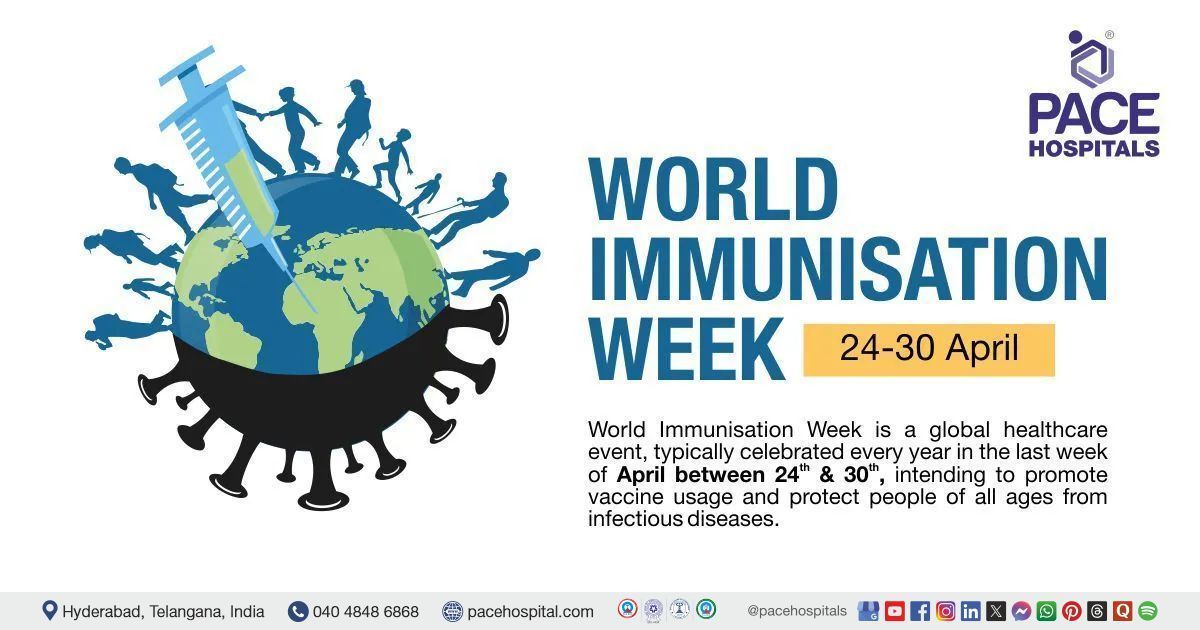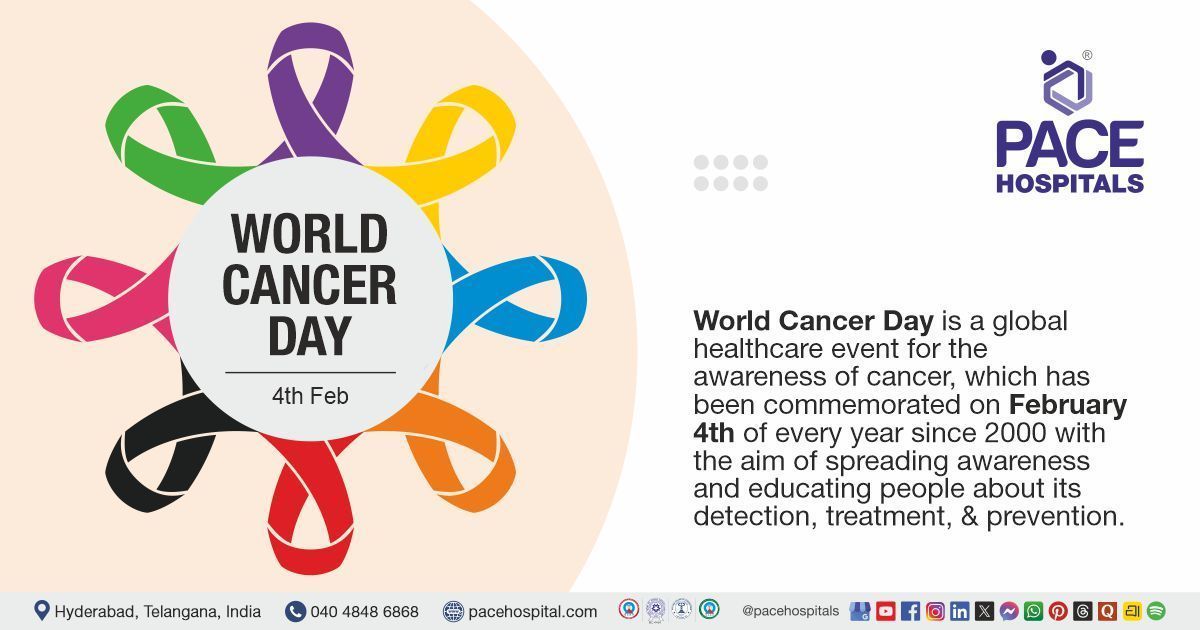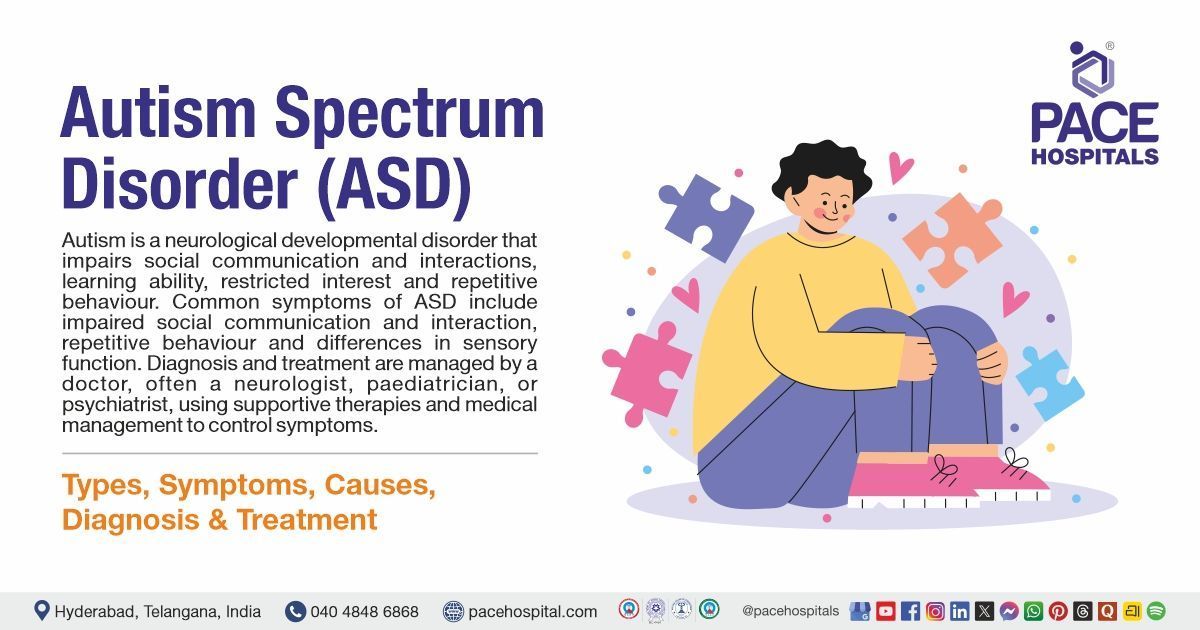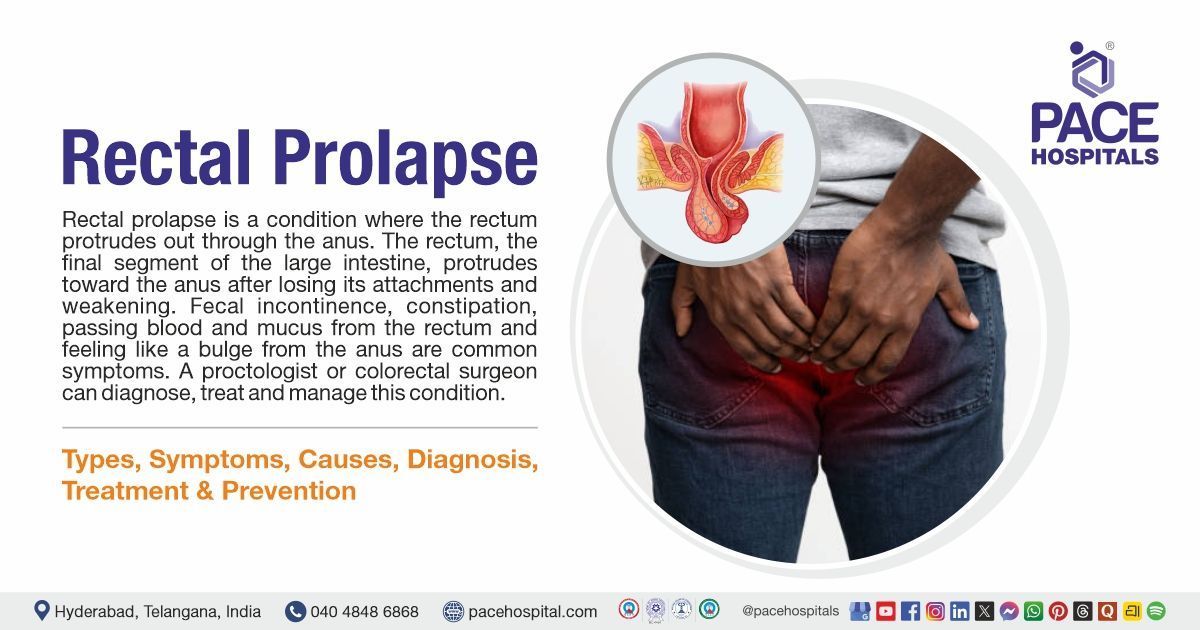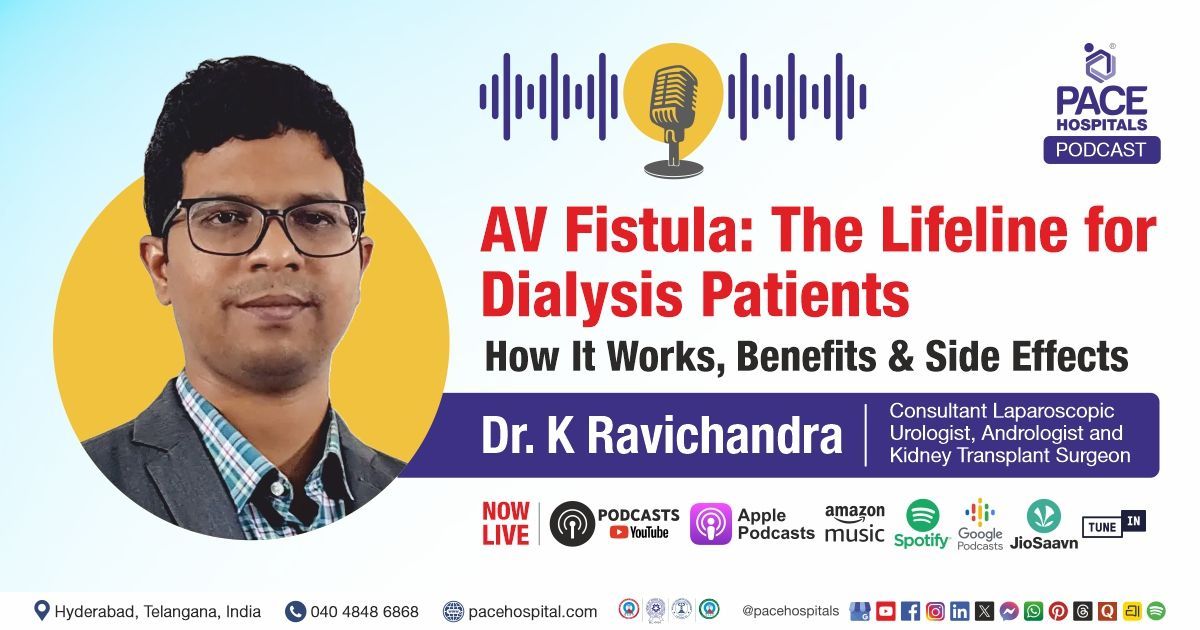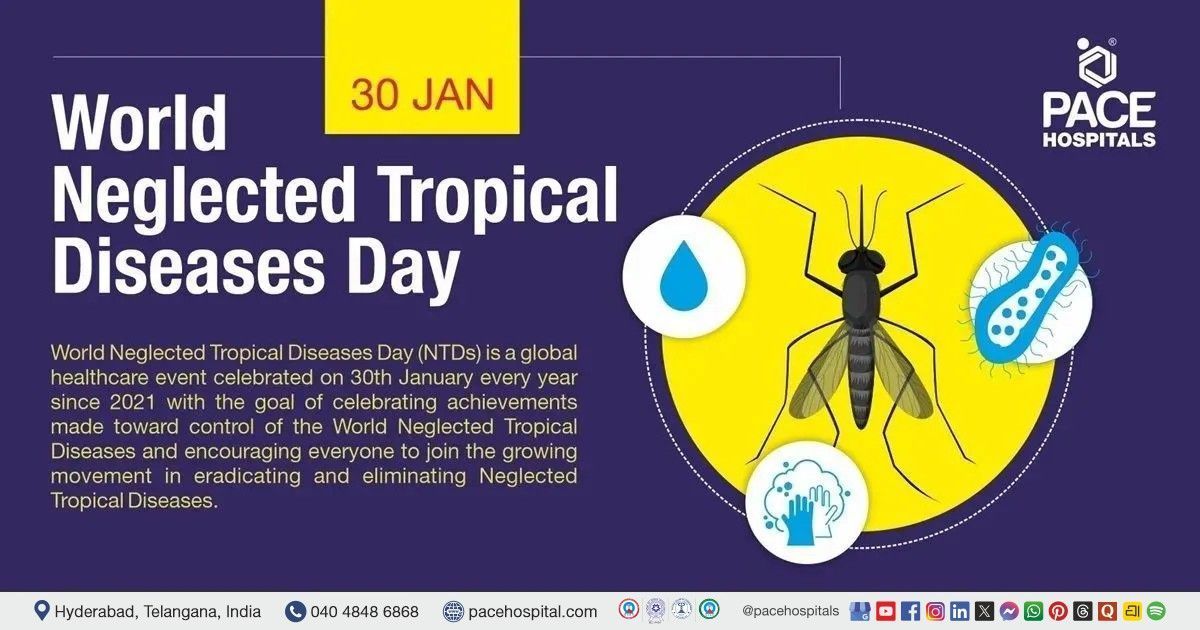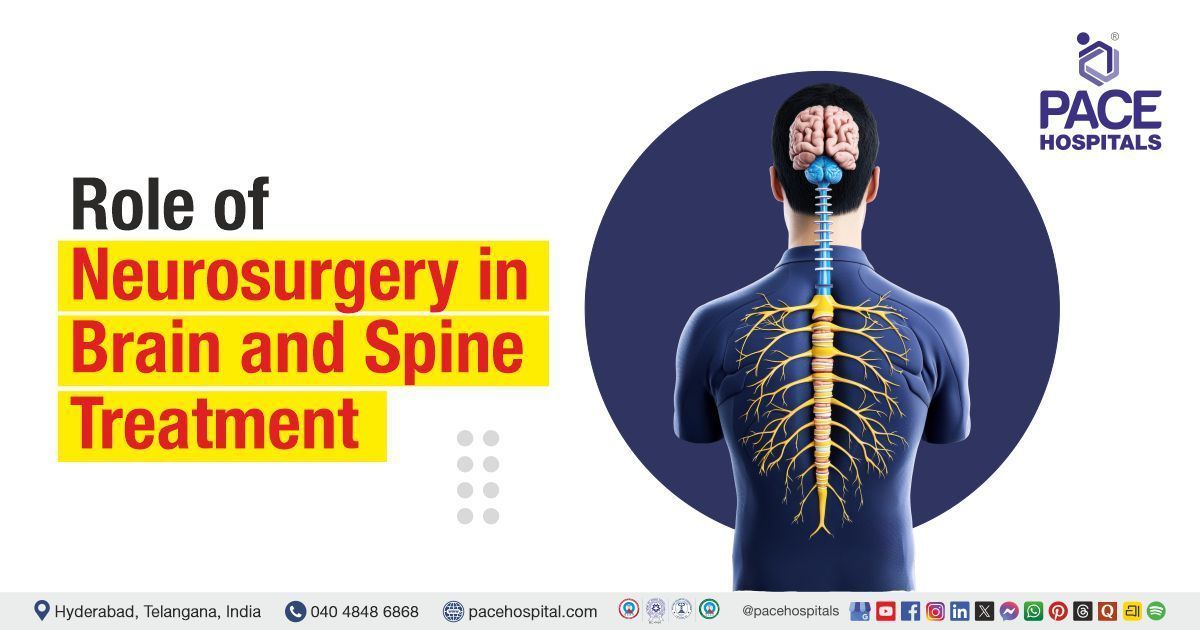World Immunization Week 24-30 April 2025, Theme & Importance
Pace Hospitals
World Immunisation Week (WIW) is a global healthcare event, typically celebrated every year in the last week of April between 24th and 30th, intending to promote vaccine usage and protect people of all ages from infectious diseases.
The World Health Organisation (WHO), in association with various international and local groups, joined hands together in this worldwide event to protect local communities from vaccine-preventable diseases and provide education by conducting various campaigns and activities. The WIW 2024 activities focus on emphasising the importance of having vaccines and immunisation in addition to aiding the governments in providing the necessary technical assistance and information required to launch effective immunisation programmes.
Infectious diseases caused by viruses or bacteria that can be prevented through vaccination are known as vaccine-preventable diseases (VPDs). These VPDs are still one of the major culprits for causing deaths in children under the age of 5 years. Immunisation can help curb VPDs in children and other infectious diseases in adults, including polio, diphtheria, tetanus, COVID-19 etc.
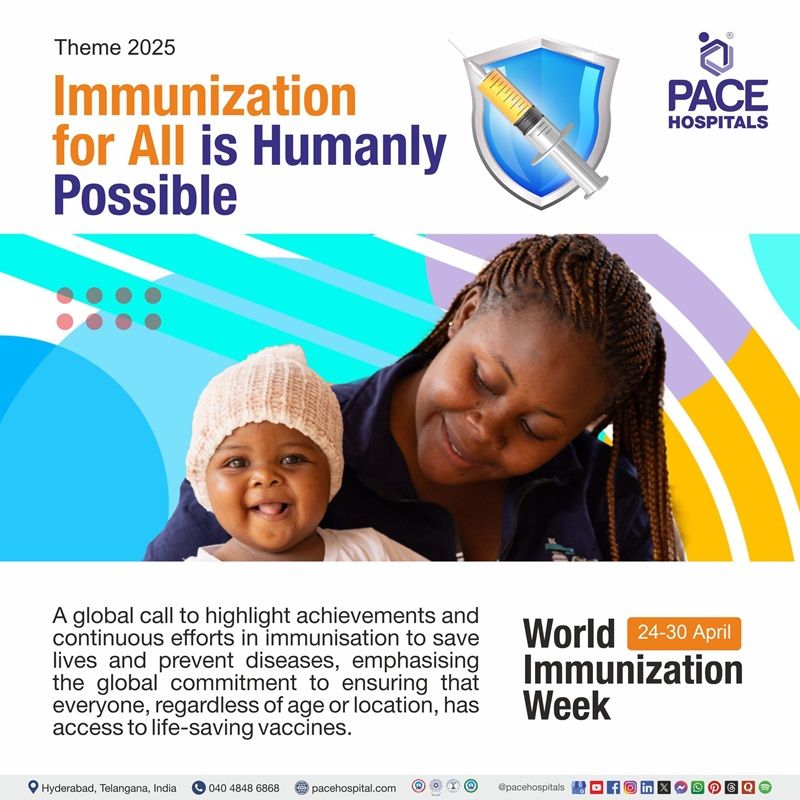
World Immunization Week 2025 Theme
This year, 2025, the World Immunization Week theme is "Immunization for All is Humanly Possible". This theme highlights achievements and continuous efforts in immunisation to save lives and prevent diseases, emphasising the global commitment to ensuring that everyone, regardless of age or location, has access to life-saving vaccines.
Year by year, the themes for World Immunization Week
- WIW Theme 2024: Humanly Possible: Saving lives through immunization
- WIW Theme 2023: The Big Catch-Up
- WIW Theme 2022: Long life for all
- WIW Theme 2021: Vaccines bring us closer
- WIW Theme 2020: Vaccines Work for All
- WIW Theme 2019: Protected Together: Vaccines Work!
- WIW Theme 2018: Protected Together: Vaccines Work!
Importance of World Immunization Week (WIW)
Immunization is a cost-efficient and effective way of protecting the health of children and adults. Since national programs for immunization were first properly established and coordinated in the 1960s, vaccines have profoundly influenced public health. The majority of vaccine-preventable childhood diseases have been eradicated in nations where vaccination rates are very high. The global mortality rate (deaths) in children (less than five years) has dropped dramatically, from 93 per 1,000 live births in 1990 to 39 per 1,000 live births in 2018. Through current vaccination programs, the WHO estimates the prevention of 35 to 50 lakh deaths each year from various diseases, including but not limited to tetanus, pertussis, influenza, measles etc.
Though immunization plays a pivotal role in preventing epidemic/pandemic diseases, it remains controversial on few phrases as it is believed to be unsafe to take a live attenuated or inactive virion or bacteria (a weak organism) as a vaccine to produce antibodies against the weak organism by the body’s immune system. It gradually fuelled the anti-vaccination movement in the public. This anti-vaccination movement led to the resurgence of well-controlled diseases such as measles.
According to the WHO, the number of unvaccinated children increased by 50 lakhs between 2019 and 2021, and in 2022, 35 lakhs of girls were not vaccinated against human papillomavirus in comparison to 2019. This could be due to individuals being unaware of the importance of immunizations. To fill this lacuna, the activities of WIW focus on educating the public about the need for timely vaccination and its safety parameters, which aid in reducing morbidity and mortality and improving quality of life.
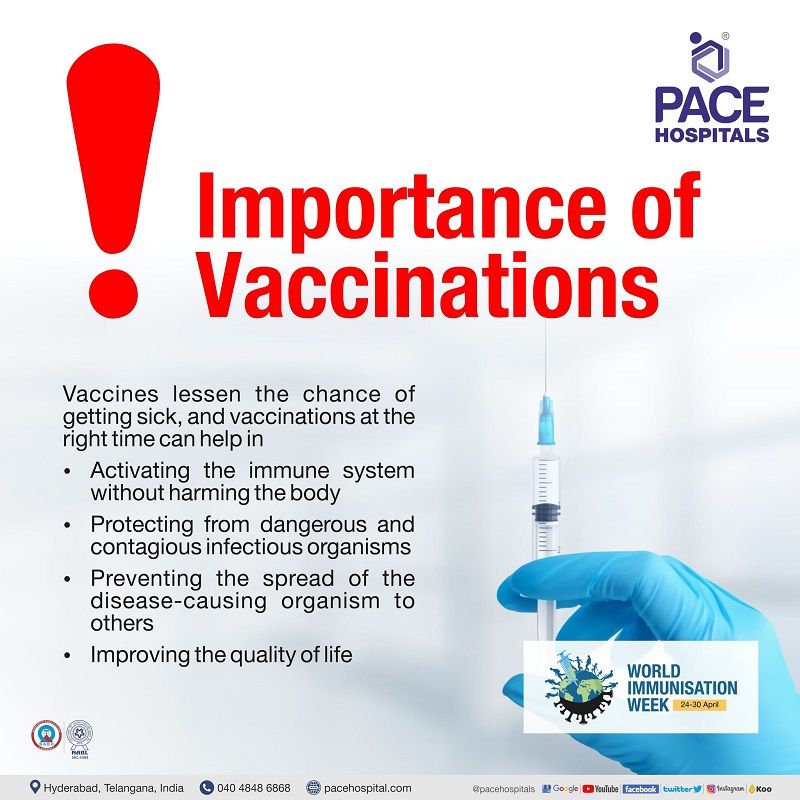
History of World Immunization Week
The World Immunization Week was endorsed in May 2012 by the World Health Assembly (WHO's decision-making body). The first World Immunization Week was observed in the year 2012 where more than 180 countries participated globally. Before 2012, the timing of Immunization Week events differed in various regions globally.
Importance of vaccinations
Vaccines lessen the chance of getting sick, and vaccinations at the right time can help in
- Activating the immune system without harming the body
- Protecting from dangerous and contagious infectious organisms
- Preventing the spread of the disease-causing organism to others
- Improving the quality of life
Share on
Request an appointment
Fill in the appointment form or call us instantly to book a confirmed appointment with our super specialist at 04048486868

